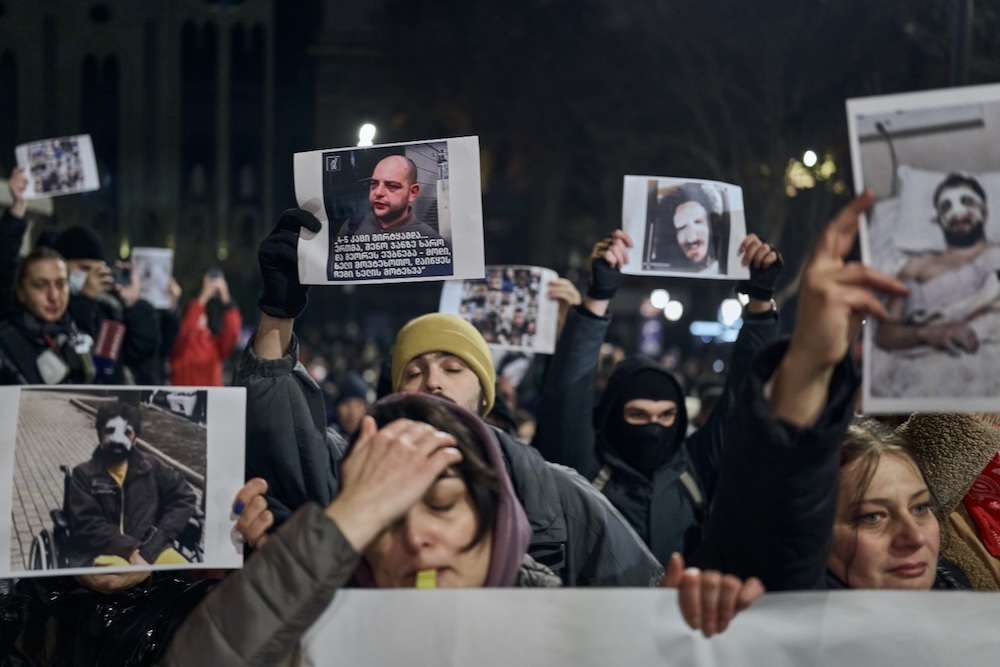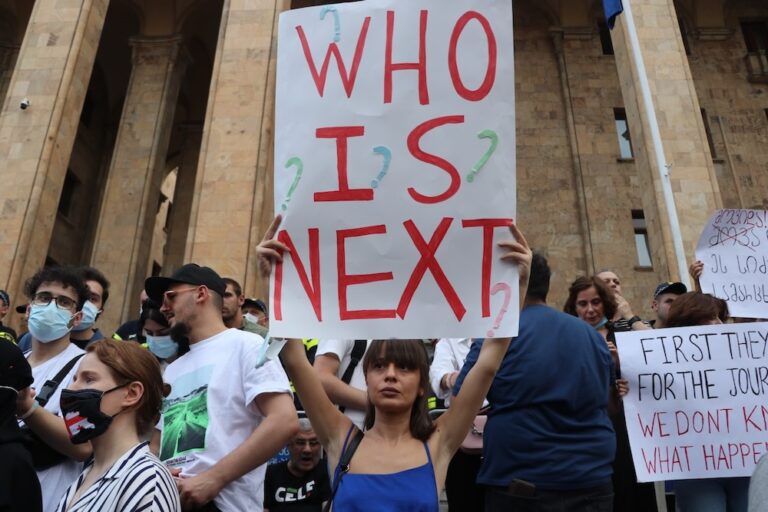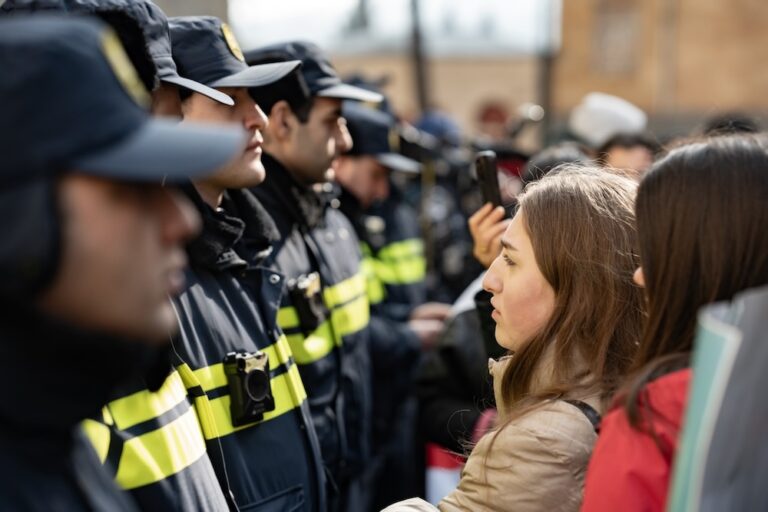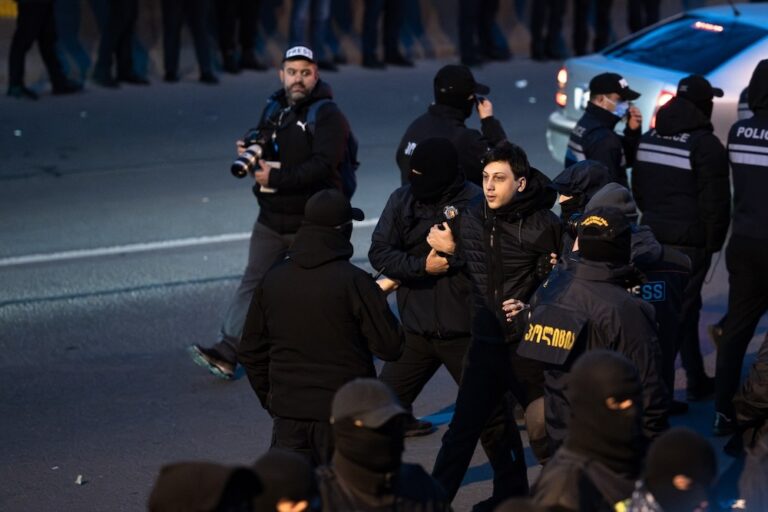"EU foreign affairs ministers gathering on 16 December to discuss Georgia should call for an independent investigation into the country’s clampdown on peaceful anti-government protests" - HRW
This statement was originally published on hrw.org on 10 December 2024.
EU leaders should impose consequences on Georgia’s authorities
European Union foreign affairs ministers gathering on December 16 to discuss Georgia should call for an independent investigation into the country’s clampdown on peaceful anti-government protests, now in their second week. EU ministers should also sanction officials responsible for violent abuses against protesters.
The heavy-handed government response to protests, amid the country’s political and constitutional crisis, risks plunging Georgia further into a human rights crisis.
Nationwide, tens of thousands are protesting the government’s decision to abandon Georgia’s EU accession. This decision violates Georgia’s constitution, which enshrines full EU integration as a goal for the Georgian state. It also transgresses the will of some 80 percent of Georgia’s population.
The pivot by the government comes one month after disputed October 26 parliamentary elections that kept the country’s ruling party in power, but which local observers and Georgia’s president claimed were marred by massive vote-rigging. It also follows the adoption of repressive legislation targeting civil society and independent media.
The government responded to the protests with teargas, water cannons, and rubber bullets. Police beat, chased down, and detained largely peaceful protesters. Riot police, as well as violent mobs presumably associated with authorities, have beaten opposition media and independent journalists and interfered with media coverage. Several hundred protesters have been arrested on various misdemeanor and criminal charges. Many reported beatings and ill-treatment in detention; dozens required hospitalization.
Despite domestic and international pressure, the government is intensifying the crackdown.
The EU has deplored authorities’ repressive actions, but it’s time for decisive steps. The EU should seek independent investigations into the post-election violence by experts from the Council of Europe and the United Nations, calling on them to examine the unlawful use of force, arbitrary detention, and the mounting evidence of ill-treatment and torture.
Additionally, EU member states should muster the consensus to use the EU’s Global Human Rights Sanctions Regime to sanction officials responsible for authorizing and carrying out beatings and violence against Georgia’s protesters. The EU should also consider imposing Schengen visa requirements for Georgian government officials and diplomats. Sanctioning authorities should happen in parallel with stepped-up, flexible democracy support for civil society and media.
As the Georgian people look to the EU in their aspirations, EU leaders should show them more than moral support. Concrete and decisive steps are needed to prevent Georgia’s human rights crisis from further escalating.



